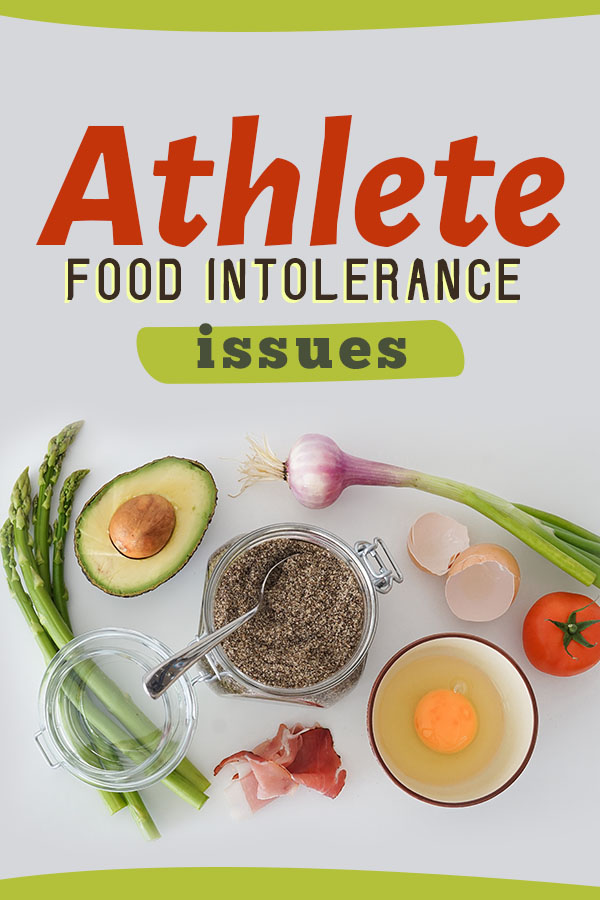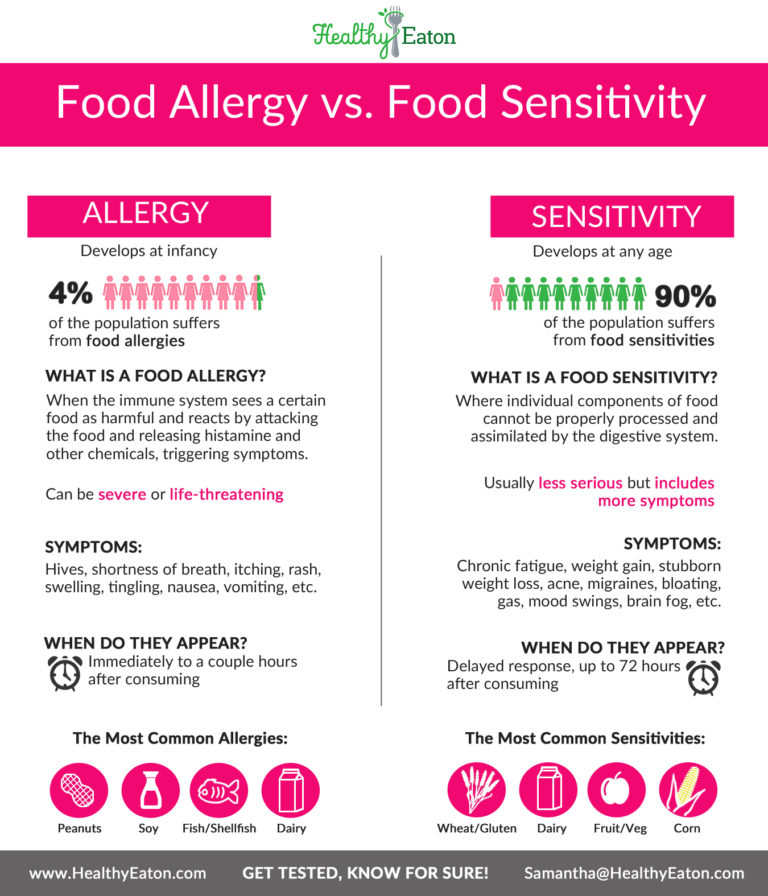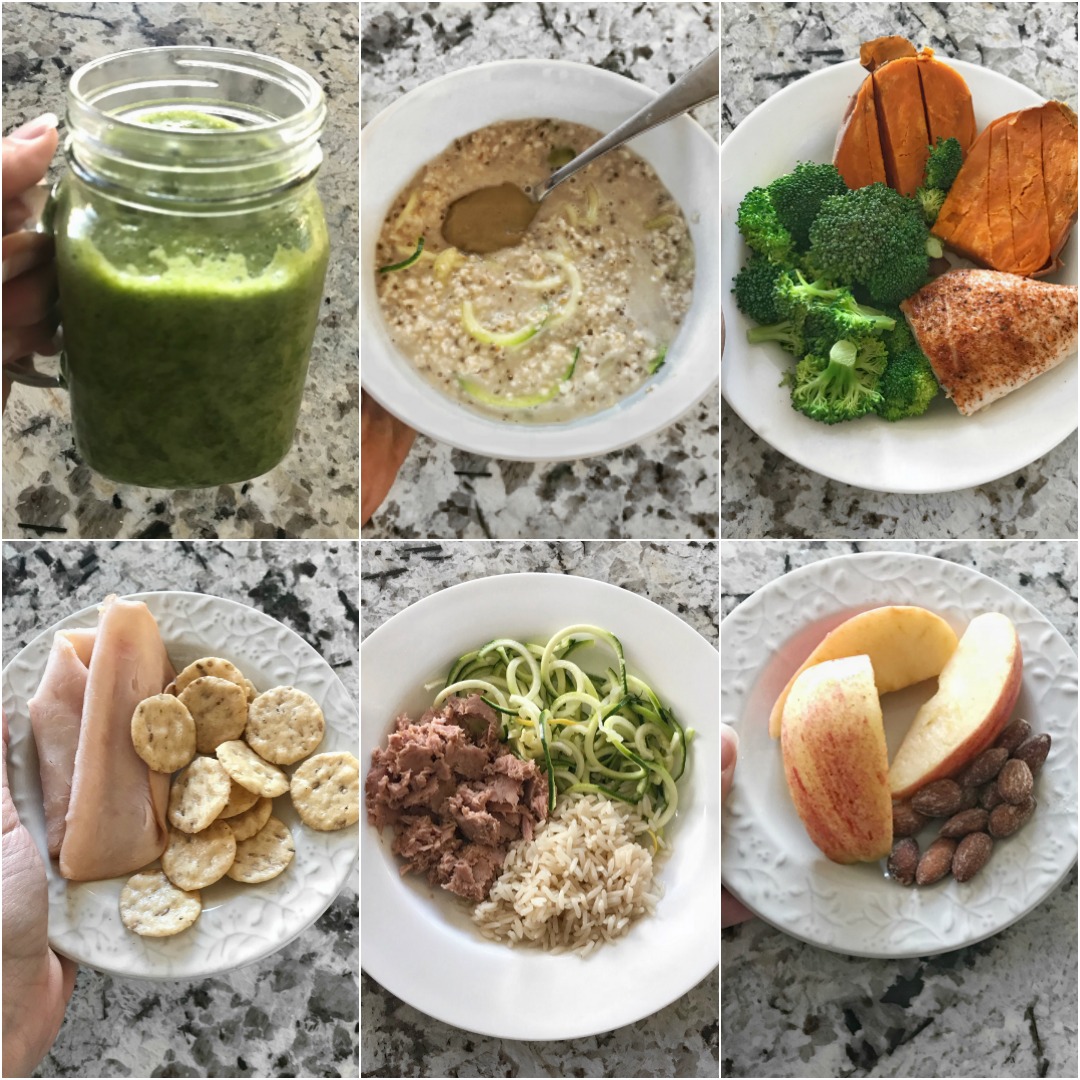As an athlete, you’re always on the move. But, have you ever felt bloating, fatigue, or stomach discomfort after consuming certain foods? These could be symptoms of food sensitivities, which can affect your performance and overall health.

Are food sensitivities real? Yes.
Can they impact your performance? Absolutely.
Are the tests to identify them accurate? Ahhh…debatable. Let’s dig into what it means and how it could be impacting your performance. Starting with what is the difference between a food allergy and a food intolerance or food sensitivity.
The quick answer is if you have an allergy, you probably know it! The symptoms are drastic and immediate, while an intolerance is more subtle and slowly wears on you over time.
This means food sensitivities differ from food allergies. While an allergy triggers an immediate immune response, sensitivities can cause a range of symptoms like inflammation, diarrhea, headaches, and even migraines, which can appear hours or even days after eating the offending food.
Why are Athletes More Susceptible to Symptoms of Food Sensitivities?
Athletes may actually be more susceptible to symptoms of food sensitivities because the stress of constant training taxes the immune system.
In other words, a stressed body will be less able to handle foods that are causing inflammation.
The digestive system, which is responsible for breaking down the food we eat, can become overwhelmed by the demands of intense physical activity. This can result in a variety of GI problems, such as bloating, diarrhea, and constipation.
Food sensitivities occur when the immune system misidentifies certain food ingredients as harmful. This triggers an immune response, leading to inflammation and discomfort in the stomach. Common food allergens include gluten, wheat, dairy, peanuts, and shellfish.
For athletes, the symptoms of food sensitivities can be particularly debilitating. They can cause fatigue, headaches, and even migraines, which can severely impact performance.
Nausea and vomiting, other common symptoms, can also lead to a decrease in sports nutrition, as the body struggles to digest and absorb essential nutrients.
Whey protein, a popular supplement among athletes, can also trigger food sensitivities in some individuals.
Similarly, some sports drinks contain ingredients that can cause an adverse immune response in those with food sensitivities.
Symptoms of Food Intolerance in Runners
As a runner, it’s really important to pay attention to what your body is telling you.
Sometimes, certain symptoms may indicate food sensitivities or allergies. These symptoms can affect your performance, energy levels, and overall health.
Food intolerance symptoms that impact us as runners:
- Increased inflammation results in muscle soreness and slows down recovery time
- Increases stress on the body leading to fatigue as the body needs more rest
- Prevents nutrients from being fully absorbed (again more fatigue, slower recovery)
- Weakens the immune system {easier to get sick after strenuous workouts}
- Causes weight gain {increased cortisol and bloating}
- Can impact breathing by inflaming the airways
- Increases our cravings for sugar and carbs
Figuring Out What’s Best for Your Body
It’s not about eating healthy, it’s about eating foods that are best for YOUR body.
For ages, I downed a Greek yogurt as a morning snack because it was so healthy and high in protein.
Every time I felt ridiculously full after eating, which I assumed was a good thing…except hours and hours and hours later I still just wouldn’t want to eat feeling like my body was overloaded.

I like this graphic because it also helps to illustrate that eating the food once when you’re sensitive to it isn’t a big deal.
But most of us are pretty habitual eaters, meaning we eat the same foods over and over. If one of them happens to be a food intolerance then the symptoms are going to start appearing.
It turns out that bloating doesn’t always look like the extreme basketball stomach, sometimes it’s largely how you feel and a very slight visible bloat that we often assume is just pounds we need to lose.
This means learning that milk actually upsets your stomach would make you think twice before swigging that high protein recovery drink or finding out honey is an issue could explain why one gel seems to work great and another leaves you with side stitches.
As said by NFL star Drew Brees:
Everything I do as an athlete, I think about maximizing performance. So anything I put in my body, I think about ‘how’s this going to help me perform at the highest level?” And, ‘how’s it going to help me recover the fastest?’
If you have an allergy to certain types of food and you are putting those into your body, your body is constantly fighting those foods as opposed to repairing muscle and helping you with recovery or performance.
Defining Different Levels of Food Intolerance
There are a lot of different terms used to talk about the way we react to food. Food sensitivities, food intolerance, and food allergies may seem similar, but they trigger different responses in your body.
Here is a quick breakdown to help you understand the difference. Any food allergy or food intolerance can be developed later in life, we aren’t necessarily born with them.

I love this graphic from Healthy Eaton which helps define better food allergy vs food sensitivity.
Food Allergy
The body has an immediate adverse reaction to the food which can be as minor as hives to as critical as swelling that closes the airway.
When you consume food you’re allergic to, your immune system sees it as an invader and launches an immune response. It’s important to note that food allergies can be life-threatening and require immediate medical attention.
These are the kinds of allergies that you hear about in reference to an EpiPen. We are not talking about this kind of allergy today.
Food Intolerance
Food intolerance is a common issue among athletes, including runners. It’s a reaction from your digestive system, not your immune system – a key difference from food allergies.
This means that food intolerance is when the body lacks specific enzymes to digest a particular food.
The two most commonly known are gluten and dairy which cause GI distress because the body cannot appropriately process the food, but are not life-threatening like an allergy.
Food Sensitivity
Often lumped in with intolerance, a food sensitivity is exactly that…something to which your body has an adverse reaction from 45 minutes to 3 days after eating it.
This means, delayed symptoms are often a characteristic of food sensitivity.
It happens when your digestive system has trouble breaking down certain foods, which can cause discomfort. Symptoms can vary greatly, but common ones include bloating, stomach pain, fatigue, and headaches.
Sometimes, these symptoms can mimic other GI problems, making diagnosis tricky. The estimate is that up to 80% of adults have some kind of sensitivity.
Cumulative dose is an important factor for most athletes. While 1 gel with honey may not bother you, that gel combined with 3 hours of body stress from running and a few other ingredients that your stomach doesn’t love could be what breaks you in terms of GI issues.
Could your slower paces be related to food sensitives? Find out more #bibchat Click To TweetFood Intolerance Test Options
Doing everything right and feeling fatigued, frequent headaches, muscle aches…might be worth getting tested! There is the 100% free method and the totally not covered by insurance more expensive method.
Elimination Diet
The cheapest and most effective way to know if you have an intolerance is to do an elimination diet.
This approach involves removing certain ingredients from your diet that are suspected allergens, such as dairy, wheat, peanuts, shellfish, and gluten.
The process is simple but requires patience. First, you remove the suspected food from your diet for a period, usually around two to three weeks. This gives your immune system and digestive system time to calm down and reduce inflammation.
During this period, monitor your symptoms carefully. If you notice a decrease in issues like bloating, stomach discomfort, diarrhea, constipation, fatigue, headaches, or migraines, it might indicate a sensitivity to the eliminated food.
After the elimination period, you reintroduce the food back into your diet gradually and observe for any symptoms. If symptoms like bloating, inflammation, or GI problems return, you might be dealing with a food sensitivity or intolerance.
Although this is the cheapest and most effective method, it’s unfortunately very hard for most people to stick to it for more than a week due to the highly restrictive nature or people forget to accurately record symptoms upon slowly adding foods back.
How I Followed an Elimination Diet
I decided instead of following a standard 21 day elimination diet, I would do a shorter 3 day rotation diet and see if I could identify some main issues. There area few ways to ensure any of these things are successful:
- Keep meals extremely basic, so you can try adding or removing things
- Don’t eat the same meal back to back, hopefully you can better judge outcome
- Each day change just 1 thing in the meal so you can see if that item causes issues
Here’s a sample of my day 1 elimination diet, where each meal we more or less want to have 1 protein, 1-2 veggies, 1 starch. That way we can say “Ugh about 3 hours after lunch I just felt so mentally foggy or my stomach was uncomfortable”.

Excellent! The next day you switch just 1 item from that lunch and see if there’s any reaction.
ALCAT Test
This is a blood test that measures food/chemical sensitivities based on how immune cells react when exposed to the foods. It can be used for up to 300 foods, gluten, gliadin, and milk proteins – whey and casein.
The one drawback is you may not test positively for a sensitivity to a food you haven’t been eating.

Here’s a snapshot of the ALCAT report I received, so you can see what to expect.
As you can see under my severe column is strawberries and peanuts. Interestingly these are two that I probably could have easily figured out on my own if I knew what I was looking for!
- After I eat strawberries my mouth is often really tingly
- I had a severe hives outbreak as a kid which my mom though was from strawberry ice cream (not I have dairy issues too)
- I had lots of stomach aches as a kid and lived on peanut butter.
- I was having some issues again and took out all peanuts…gone.
Sometimes it really is that easy. Look at the foods you’re eating and try taking one out for 10 days (all versions of it). Do you feel any different? If so, you may have pinpointed the problem.
Quick Tips to Avoid Runner’s Trots
A runner’s guide to avoiding runner’s trots and other food impacts:
- Determine if you are having digestive issues only on the run or more frequently {signs of poor digestion}
- Try an elimination on your own of possible suspects (usually dairy, gluten, soy, corn, nuts). Add notes to your running log about foods and how you are feeling.
- Get tested by a professional
- Work with said professional to figure out a personalized nutrition plan
Common Food Intolerance Questions
There are a lot of things that we still don’t know about food issues, like what causes them! But here are some of the most common questions I’ve gotten.
What are the symptoms of food intolerance?
Food intolerance symptoms can vary greatly. However, some common symptoms include bloating, stomach discomfort, diarrhea, constipation, and fatigue. Some athletes might also suffer from headaches or migraines after consuming certain foods.
How can I know if I have a food intolerance?
If you suspect you have a food intolerance, a food sensitivity test or a food intolerance test can be helpful. These tests can identify specific allergens that trigger an immune response in your body, leading to inflammation and other symptoms.
What are some common food intolerances in athletes?
Some common food intolerances among athletes include gluten (found in wheat), dairy (including whey protein), peanuts, and shellfish. These foods can cause discomfort and digestive system issues, impacting sports nutrition and performance.
What is an elimination diet?
An elimination diet involves removing specific ingredients from your diet that you suspect might be causing symptoms. After a period of time, these foods are gradually reintroduced to see if symptoms reappear. This can be a useful tool in the diagnosis of food sensitivities.
How can food intolerance affect my performance?
Food intolerances can cause GI problems, leading to fatigue and discomfort. This can affect an athlete’s performance. Furthermore, chronic inflammation caused by an ongoing immune response to certain foods can also impact athletic performance.
Can you get over food sensitivities?
Yes. Turns out that as you heal your stomach {from removing inflammation causing foods} you will likely lessen severity of allergies and over time with complete healing could be totally free of any sensitivities. This is a LONG process though.
How reliable is the ALCAT test?
This was a big concern for me and after reading A LOT of different things, I’ve come to this conclusion: it’s worth testing.
There are advocates who swear it’s changed their lives and healed them by learning what foods to remove and scientists on the other side saying these tests cannot be accurate.
Scientists also don’t understand how acupuncture or Chinese herbs work for so many…but we all know at least on person who has felt better from using Easter Medicine that’s never been proven in a lab.
What Are the Most Common Food Sensitivities?
While it’s often said that we develop intolerances to foods we eat repeatedly, this does not appear to be the case. The reasons that allergies develop don’t seem to be fully understood yet.
The most common foods tend to be the same ones as for food allergies:
- Eggs
- Dairy
- Chocolate
- Soy
- Peanuts
- Wheat
- Wine
- Shellfish
If you’re an athlete experiencing any of these symptoms, consider taking a food sensitivity test or food intolerance test.
These tests can help identify the cause of your symptoms and guide you towards an elimination diet, which can help determine the specific foods causing your discomfort.
Always remember, a proper diagnosis is key to managing food sensitivities and maintaining optimal sports nutrition.
My friend Amber at Awakened Nutrition has a great program especially focused on soy and beating belly bloat!
Existing Sports Nutrition Articles:
Looking for more tips to enhance your sports nutrition and perform better, here you go.
Sports nutrition who to work with and benefits
Is your workout causing you to gain weight
Understanding the impact of digestion on health
Advice for avoiding runner’s trots
Have you ever taken a food sensitivity test?
What if you were restricted from your favorite food??
hint I’ll be talking about dealing with this! HELP ME
Other ways to connect with Amanda
Instagram Daily Fun: RunToTheFinish
Facebook Community Chatter: RunToTheFinish
Get more running tips: Pinterest


 Should You Follow a Race Pace Group?
Should You Follow a Race Pace Group?
Kortney // Allergy Girl Eats
I am actually looking into getting retested. I will most likely be getting a blood test to look at IgEs. Inflammation seems to be quite a hot topic at the moment. I didn’t know much about it, but it really does impact people with food issues. This was a great read :D
amanda
Thanks so much! I have been reading so much about testing that now I’m torn on how useful it is, but I also know finding out the big one’s helped me a lot!
April
This is good to read. I recently got allergy testing done. I wasn’t allergic to food but food I am allergic to Candida which grows in your stomach. Now I am on a tight diet to get rid of the Candida and it has helped me see I am sensitive to gluten and chocolate. I feel a lot better even though I miss my chocolate and bread! Thanks for the idea about the 3 day rotation. I want to give it a try to pinpoint my food better.
amanda
Ya I realized that chocolate might be an issue for me right now. But could be because I was eating it daily! So I’ll take it out sadly for a bit.
Amanda Cian
This was very useful for me since I have been started all kinds of things that would help me loose weight along with waist training. I was just a little confused as to what diet plan to follow. You gave me a lot of useful ideas to speed up the process.